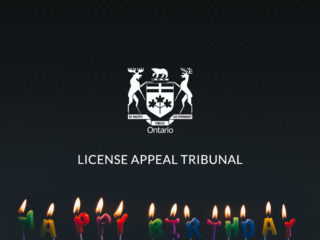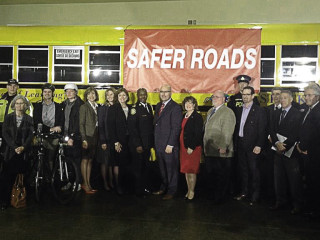Released June 8, 2015 | CanLII
This eight-day motor vehicle injury trial proceeded before the Honourable Mr. Justice F.L. Myers and a jury in Toronto in January and February 2015. Liability was admitted. The jury awarded the plaintiff $30,000 for general damages but nothing for his claims for past and future loss of income or for future care. Justice Myers subsequently granted the defendant’s threshold motion on February 2, 2015 on the basis that the impairment of the plaintiff was not serious. Justice Myers dismissed the action.
Counsel for the defendant then sought his client’s costs of the action. Justice Myers noted that a successful litigant has no right to costs, but only a reasonable expectation of costs: Lakew v. Munro, 2014 ONSC 7316 (CanLII).
Justice Myers held that two fundamental issues informed his discretion to award costs in this case: the outcome and counsels’ failure to comply with the pre-trial Case Management order of Stinson J. dated December 3, 2014.
Justice Myers first accepted that costs of an action are to be determined without considering the $30,000 deductible on general damages set out in para. 3 of s.267.5(7) of the Insurance Act, R.S.O. 1990 c.I.8. However, he did not agree with the plaintiff’s submission that a failure to meet the statutory threshold set out s.267.5(5)(b) of the Insurance Act should also be ignored by the Trial Judge when considering costs of the action. Accordingly, Justice Myers held that because the plaintiff failed to meet the threshold in this case, the defendant was successful in this action for costs purposes. He noted that ordinarily he would have fixed the defendant’s costs at $100,000 inclusive of disbursements and HST. However, because the trial Case Management Order of Justice Stinson had been breached, he declined to award the defendant any costs of the action.
Justice Myers wrote that the civil justice system in Ontario is broken. He noted that the Supreme Court of Canada has written in Hyrniak v. Mauldin, 2014 SCC 7 that the civil justice system does not fulfil its goals of providing efficient, affordable, proportionate access to courts for the fair resolution of civil cases.
Justice Myers noted that Justice Stinson had assisted the parties in getting ready for trial at a pre-trial conference on December 3, 2014. Justice Stinson had made an order that required, amongst other things, a joint document brief, jury questions to be prepared before trial and lay witness statements for non-party lay witnesses to be exchanged.
Counsel for the defendant then refused to consent to a joint document brief before trial. He also served medical/legal reports during the trial and answered some undertakings on the eve of trial.
Justice Myers noted that, as officers of the court, counsel are expected and required to cooperate on matters of process and scheduling. Counsel are required to set aside the time to meet and discuss Trial Management in good faith in advance of trial. If there are real evidence issues, they should be identified and resolved in good faith if possible. The existence of issues on some documents is not a reason to refuse to agree to other documents being admissible. In addition, Justice Myers held that there is no reason for a plaintiff’s entire medical history to go into evidence in a typical personal injury trial. Only documents that are to be used in evidence should be put in the joint books of documents. The parties should have their files at court so as to be ready to supplement the evidence in case unexpected matters arise. But it is wasteful and cumbersome to load the court and the jurors down with multi-volume thick briefs, when a tabbed record of 10-20 documents is all that is required in most cases.
At paragraph 106 Justice Myers wrote:
[105] Playing uncivil, tactical, inappropriate, old-school, trial by ambush games like: threatening to require proof of obviously valid records, holding back important documents until the last second, failing to fulfil undertakings until the eve of trial, delivering new expert’s reports during the trial, saying untrue things to counsel opposite (whether knowingly or not), failing to prepare examinations in advance to “wing it” at trial, refusing to agree to the admissibility of relevant documents while requiring changes to be made to irrelevant ones, refusing to share costs of joint expenses, refusing to cooperate on court ordered process matters, are all wrongful. Most of these things have been considered unprofessional sharp practice and inappropriate for decades. [107] In light of the defendant’s failure and unwillingness to comply with the order made by Stinson J., its late disclosure of important documents, counsel’s uncivil conduct leading up to and at the trial, and the repeated failures of the defendant’s counsel to comply with the directions and orders of the court, it is appropriate for the court to exercise its discretion to deny the successful defendant its costs. The uncontested evidence of misconduct by the defendant’s counsel is good reason to exercise the court’s discretion to depart from the normal rule that costs presumptively follow the event.
Justice Myers considered but declined to make an order for costs to be paid personally by counsel for the defendant under Rule 57.07 of the Rules of Civil Procedure. No Order was made as to costs.
Counsel for the plaintiff: Ryan Naimark
Counsel for the defendant: Nicholas Mester and Mark Elkin













